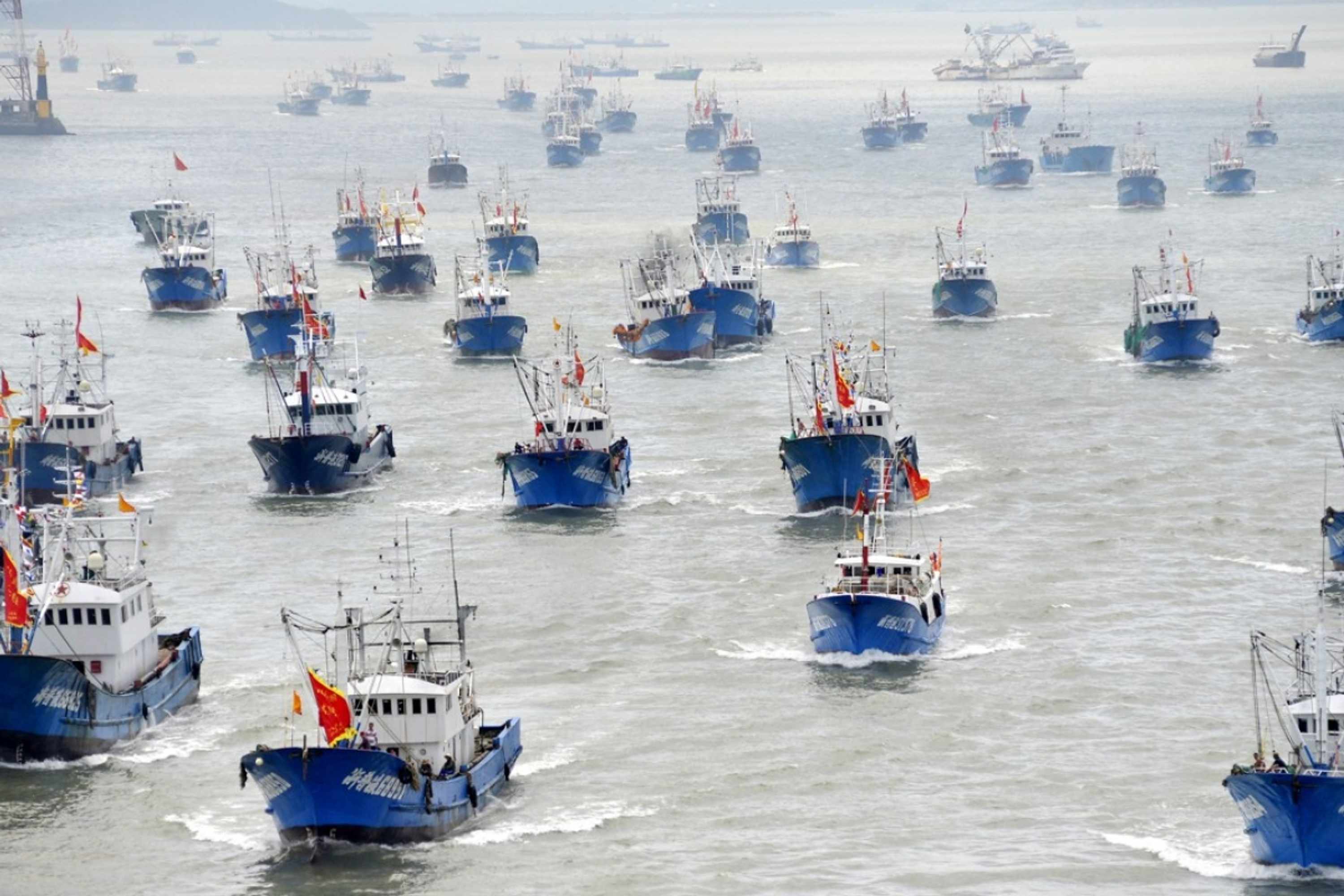Joining the dots from the Galapagos to Hong Kong's shark fin market
Joining the dots from the Galapagos to Hong Kong's shark fin market
.jpeg?w=1200&q=45)
HONG KONG, 05 August 2020 – 260 Chinese fishing boats are now amassing, Spanish Armada-like, on the edge of Ecuador's Galapagos Islands National Park, a park made famous by Charles Darwin that sits inside a pristine marine protected area. The park is supposedly a safe haven for hammerhead sharks, whitetip reef sharks and turtles. But Chinese fishing boats don't have a good track record; they've been busted fishing for sharks in the Galapagos before. In August 2017, Ecuadorean authorities boarded a Chinese-flagged vessel, the Fu Yuan Yu Leng 999 and found around 300 tons of marine species onboard, including more than 6,600 dead sharks, most of which were hammerheads. Park officials also found thresher, mako and silky sharks on board – all protected species.
Add to that Hong Kong's record-breaking seizure in May this year of 13 tonnes of endangered hammerhead sharks smuggled in by ship from Ecuador, a haul estimated to be worth around £815,000. Again, it's not hard to join the dots between China's looming fishing threat to the Galapagos Islands and Hong Kong's dodgy shark fin market.

Shops in Hong Kong openly trading in shark fin products - photo credit - Dorothy Cheng
Fisheries experts have noted that harmful fishing subsidies provided by the Chinese government to its distant water fishing fleet are enabling fishing captains to buy all the diesel they need to make the long journey across the Pacific to the Galapagos. Recent WTO negotiations between China and the United States to discuss the thorny issue have stalled, as American negotiators contest China's lobbying “special and differential treatment” and claim of 'developing nation status' – a claim clearly at odds with the vast size of its distant-water fishing fleet. China's fishing fleet dwarfs the rest of the world's fishing fleets, even as China's fishing boats are often registered to obscure shell companies or sail under foreign flags of convenience.
However, according to Ecuadorean enforcement officials, China's industrial fishing fleet, currently just off the Galapagos, haven't actually broken any laws yet. But in coming days they could be well poised to plunder the national park's lucrative stock of sharks – including its carefully monitored population of endangered hammerheads – if they choose to, by switching off their vessels' communications devices, a common ploy used by fishermen the world over to evade law enforcement.

_Chinese fishing boats on the move Photo: China Foto Press. China’s fishing fleet _operated more hours in 2016 than the next 10 biggest nations combined
Ten thousand miles away, meanwhile, along the tram tracks of Hong Kong island sits the city's shark fin dried seafood market. Like an underwater dive gone wrong, thousands of dead and dried sea creatures lie in stinking plastic bags on shelves, or in sacks on the floor of tiny shops of 'Dried Seafood Street,' as the Hong Kong Tourism Board likes to tout it. These businesses, often suspected to be nothing more than fronts for money laundering, will sell you a kilo of 'superior shark fin' for an eye-watering £622 per kilo. Or if you prefer the cheaper option, a kilo of raw, unbleached, shark fin will set you back £185 – but you'll have to scrape off the rough grey shark skin yourself.

Shark fin products on sale in Hong Kong - photo credit - \_Dorothy Cheng_
Even though shark fin soup is still considered a luxury for many Chinese, don't expect that eating it comes without risk. Mercury, and its more toxic cousin methyl-mercury, if found in seafood, can cause Alzheimer's disease. This month a report by Florida International University found that every single sample they collected from Hong Kong's shark fin market for analysis contained staggeringly high amounts of mercury, far surpassing legal limits set by Hong Kong's Centre for Food Safety. Garcia Barcia, one of the study's co-authors, said, “The results were astonishing. The mercury levels are [...] six to ten times higher than what a safe level of mercury would be considered in Hong Kong.”
Sharks are in deep trouble, globally. In a separate scientific study, Global Finprint found sharks to be “functionally extinct” in many coral reefs around the world. Scientists placed cameras on 371 reefs in 58 countries but found sharks were virtually absent from 20% of the reefs they checked. It's not unreasonable to suggest that Hong Kong's unregulated shark fin market, where bags upon bags of baby blacktip reef sharks sit alongside Chinese medicine quack remedies, has played a major role in obliterating the world's coral reefs.
Back home there is a growing momentum to ban the UK's dirty shark fin trade. An Early Day Motion to ban the import of shark fin into the UK, sponsored by the Scottish National Party, now has 22 MPs supporting it. A public petition on Parliament's website now has over 17,000 signatures. And as Brexit day looms, the UK government finds itself in a unique position to break free from the European Union's constrictive fisheries laws, much of which are influenced by Spain, which just so happens to be the largest exporter of frozen shark fin to Hong Kong.


